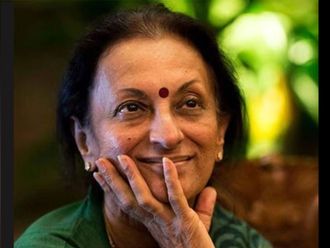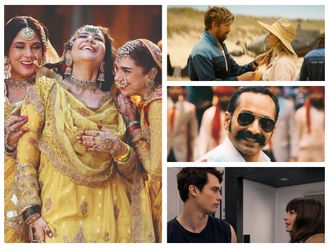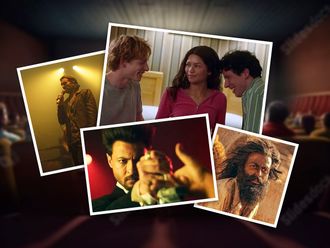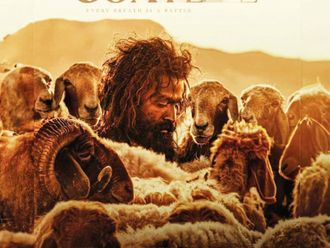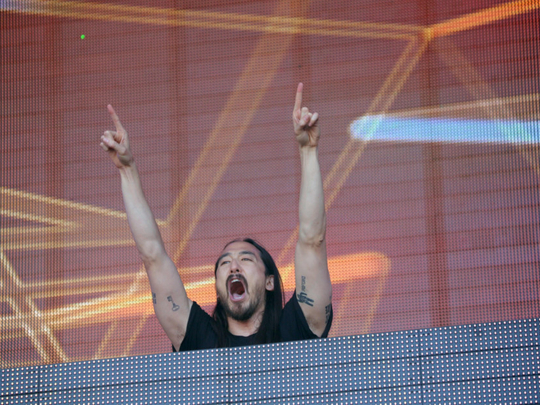
In a new documentary on DJ Steve Aoki, his wife sums him up when he is out of sight: his frenetic career is an attempt to prove himself to his father.
The characterisation is startling in that it is unlikely Aoki would utter it himself — the DJ had a complicated relationship with his late dad, who became a millionaire through the Benihana restaurant chain.
I’ll Sleep When I’m Dead, which premiered at the Tribeca Film Festival and was released last month on Netflix, traces Aoki over three years as he pursues a relentless pace and proudly strives to be one of the hardest-working artists on the scene today.
In a course of two days, Aoki packs shows in Sweden and Las Vegas, and takes part in Los Angeles in a studio session and a 10-hour video shoot, catching sleep stretched out in the aisle of his private jet.
Renowned for his lively electronic sets that culminate in Aoki throwing cakes at dancing revellers, the DJ on the surface cuts an upbeat character.
But the documentary offers darker assessments of his background, including the racism Aoki endured as a child in California.
His wife, model Tiernan Cowling, said he is unable to handle down time and is trying to match the intensity of his father, Hiroaki “Rocky” Aoki.
The elder Aoki — a wrestler and powerboat racer originally from Japan — pulled in American diners with his restaurants’ theatrical knife-wielding chefs, a possible foreshadowing of his son’s showmanship.
Life away from father
Directed by Justin Krook, I’ll Sleep When I’m Dead was produced by Matthew Weaver and David Gelb, who made the acclaimed Jiro Dreams of Sushi documentary about a perfectionist sushi chef who lords over his tiny restaurant in a Tokyo subway station.
Aoki, an admirer of Jiro Dreams of Sushi, gave extensive access to the filmmakers, although he acknowledged that he was initially thinking of a short, energetic video of the type he releases for fans on YouTube.
Speaking to AFP in New York, Aoki said it was “a bit awkward” to speak about himself so forthrightly for the film.
“It really dredges up feelings I had as a kid that I didn’t think I still had,” said the 38-year-old, who recently came in number five on the Forbes list of the world’s top-paid DJs.
Despite Rocky Aoki’s fortune, Steve Aoki did not see it as he grew up with his mother after his parents’ divorce.
Aoki said that one of his proudest moments was when he was able to buy a car — a Prius — with cash from shows.
“That was pretty epic for me,” he said. “It felt like stripper money, 20s and 10s. And I just dropped it on the table.”
Aoki strayed from his father’s path early on. He majored in women’s studies and sociology and became a vegan, choices incomprehensible to the alpha-male Rocky.
No slowing down
Aoki recalled an isolated childhood as a rare Asian American in overwhelmingly white Newport Beach in Orange County.
“It’s a culture that unfortunately breeds ignorance from the whole basis that there is no representation of people of colour. When you’re underrepresented, you’re misrepresented — that’s something I said in college,” he said.
Aoki ultimately found a community through punk rock. On a shoestring budget he started the Dim Mak label in Los Angeles, whose parties became legendary and featured rising acts such as Lady Gaga and Daft Punk.
First dabbling in studio production, Aoki is now at the forefront of the global boom in electronic dance music.
“Punk rock was all about rebellion from the status quo, and now my music is transformative where it is not about being exclusive, it is about being inclusive,” he said, hailing the diversity of fans at his shows.
The documentary is loosely structured around Aoki’s plans to debut new music in his first-ever show at New York’s Madison Square Garden. A crushed Aoki is forced to cancel as his intense schedule keeps him from recording.
Aoki said he had no plans to slow down, keenly aware that music can be an unstable career.
“At any point in time, this could be over,” he said.
“I’m always in this position where I really stop and think — if I wasn’t here, would I want to be here?
“And the answer is always yes. I spent my whole life trying to get here and now I’m here.”






